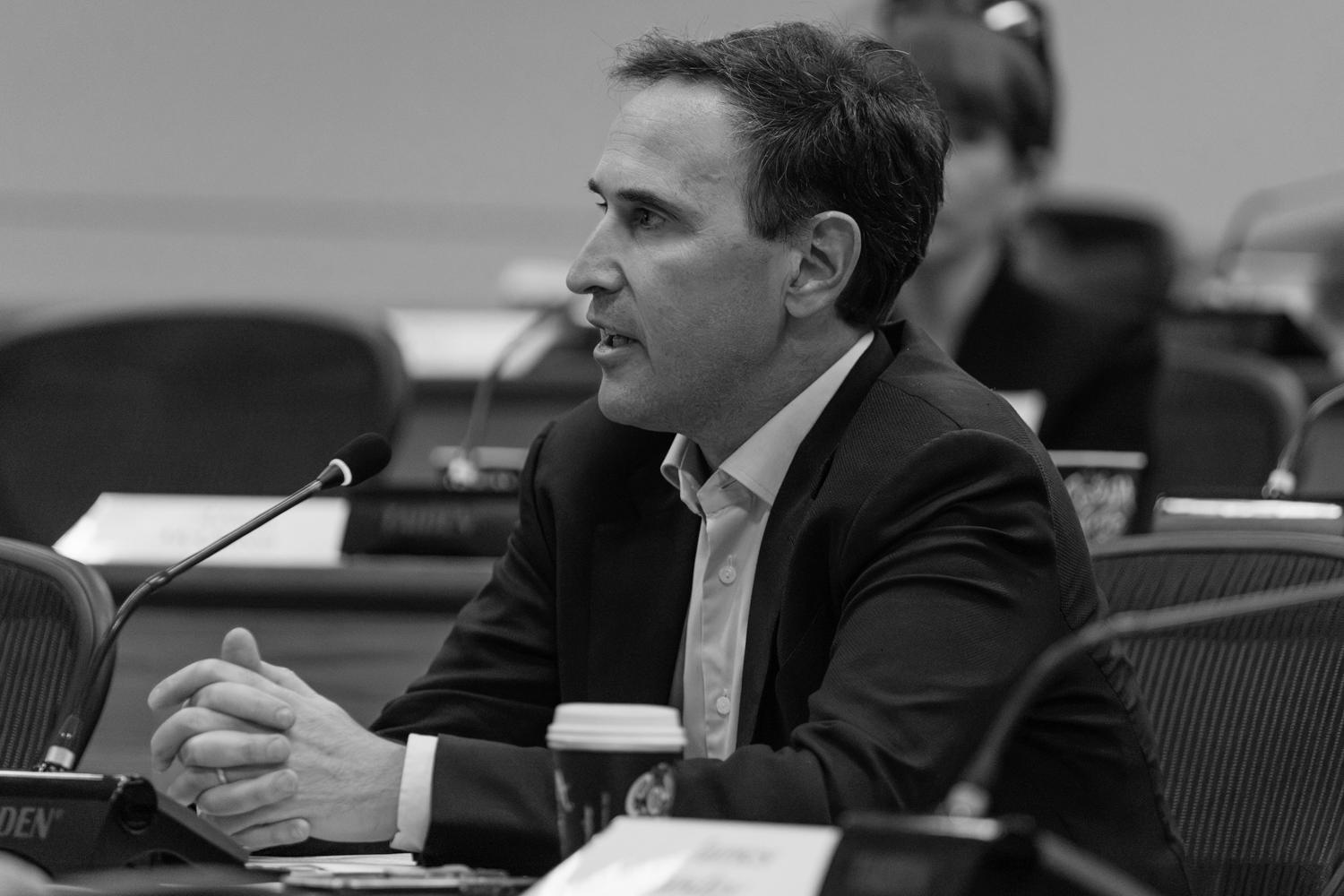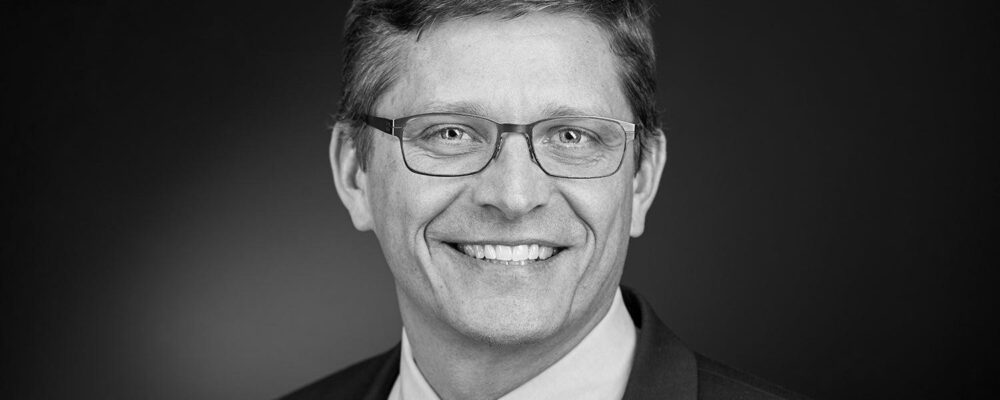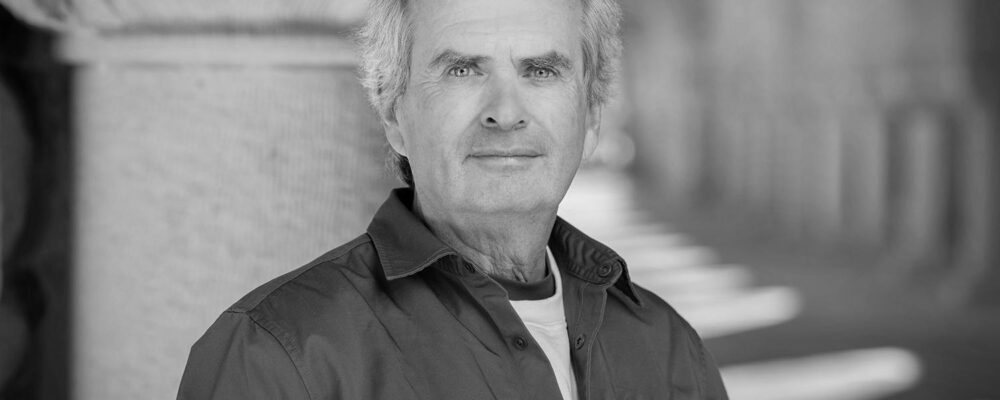President Jonathan Levin elaborated on the principles guiding the university’s approach to ongoing federal policy challenges and announced the launch of a committee to explore expanding the size of the undergraduate class during Thursday’s Faculty Senate meeting.
The Faculty Senate adjourned to executive session following the president’s remarks and discussion.
“},”imageData”:null}”>
Texts of President Levin’s remarks
In addressing the senate, Levin expanded upon the set of principles he and Provost Jenny Martinez are using to guide the university at this time.
“First, the partnership between universities and the federal government is exceptionally important – to universities and the country,” Levin said. “There is perhaps no university which demonstrates that more than Stanford. When the government began its investment in scientific research, we were a good regional university. Federal funding enabled us to become a great national and global university. In turn, we demonstrate how university research can be an engine of innovation for the country and for the world.”
Studies of federally funded research find that it has exceptionally high social return on the investment, Levin said, and many specific examples come from Stanford.
“Second, academic freedom is an essential part of that contract,” Levin said. “It protects members of the university to question orthodoxy, to debate ideas, to pursue lines of thought that go against the prevailing political winds. It requires protection from both internal and external coercion. On the external side, First Amendment protections for free speech, including unpopular ideas, are a fundamental part of the country.
“It is also important for universities to recognize that we have not always lived up to our internal end – we have had speakers shouted down, published lists of harmful words, and had situations where the careers of students or faculty were threatened for politically unpopular speech. Today, I believe we can be proud of what we are doing at Stanford to protect free inquiry and model civil discourse.”
Martinez and Levin have prioritized free inquiry and civil discourse, along with clear rules for protecting speech and the rights of others to study and learn. Initiatives to support this include the Civic, Liberal, and Global Education (COLLEGE) first-year requirement, the Stanford Civics Initiative, and ePluribus Stanford, which was launched last year.
“That is the right way for universities to address concerns, rather than under the threat of losing federal funding,” Levin said. “This is an exceptionally important moment for the United States to build upon the value created by its universities, not to lose the edge that those universities bring.”
“We stand on the precipice of breakthroughs in cancer research, neuroscience, robotics and many other fields, often powered by advances in data and machine learning,” Levin continued. “The threat of removing funding from universities that house many of the world’s great researchers has the potential to gravely damage the country’s competitive standing and our long-term prospects for innovation and growth.”
Levin thanked the Faculty Senate for their dedication to higher education.
“This time is a test of our ability to work together and with other universities and with the country to chart a course of continued excellence guided by clear and enduring principles,” Levin said. “We are doing that. We will continue to do that, and we are fortunate to have this faculty governance body to help us in that task.”
Expanding opportunity
Levin also announced the launch of a committee to explore expanding the size of the undergraduate class in a way that “preserves the excellence and character of Stanford undergraduate education and the experience of being a Stanford student” – both of which he said are critical.
“Some growth is overdue, and it’s possible without changing the fundamental character of the experience we provide,” Levin said.
Every time an undergraduate is admitted to Stanford, the university creates an opportunity for the student, for the faculty teaching that student, and for a Stanford graduate to make a difference in the world, Levin said.
“We believe that there is a path to create more of those opportunities in ways that enhance the entire university,” Levin said. “In the last 50 years, everything at Stanford has grown – the size of the faculty, the number of graduate students, the annual budget, the physical campus, the array of programs and majors, the number of qualified applicants – but not the number of undergraduate students.”
Following discussions with the Faculty Senate’s Committee on Undergraduate Admission and Financial Aid, the university will add around 150 additional students, primarily freshmen as well as a number of transfer students, this coming year. The university made similar additions during the pandemic and will apply lessons learned from that experience, Levin said.
“I think it can be an important response to one area of national concern, which is the creation of educational opportunity in this country,” Levin said. “We’ve made exceptional strides at Stanford in financial aid. Today, if you’re a domestic student and your family comes from the bottom 80% of the income distribution, Stanford tuition is zero. Last year, 88% of the students who graduated from Stanford left with zero debt. However, the fact of the matter is that we turn away many, many qualified students. It’s within our capability to educate more of them and to share the knowledge that we create in more expansive ways.”
After the president’s remarks, Elaine Treharne, the Roberta Bowman Denning Professor in the School of Humanities and Sciences, professor of English, and, by courtesy, of German studies and of comparative literature, read a faculty petition requesting that Stanford issue a statement defending the university’s mission and its faculty and students pursuing free inquiry and debate, and in particular, defending transgender rights, due process for international students facing the threat of deportation, and fields of scholarship such as feminism, race, ethnicity, gender, and sexuality.
“We must be allowed to question the policies of our government without fear of reprisal. … We see in the present political events a concerted attack on our system of government, on the university system of free inquiry and debate, and on democratic participation,” said Treharne.
In response, Levin reaffirmed the university’s commitment to defending free inquiry and debate on campus, and added that Martinez and he believe the best approach is to articulate clear and general principles and act on them in a consistent manner, rather than issue statements on specific issues.
Citing an event in which a scheduled speaker withdrew after an email campaign was launched against faculty, David Palumbo-Liu, the Louise Hewlett Nixon Professor in the School of Humanities and Sciences, professor of comparative literature and, by courtesy, of English, asked for the university to develop a policy protecting faculty from being targeted by external groups.
“Colleagues are not worried that Stanford will deprive us of academic freedom,” Palumbo-Liu said. “We’re worried that Stanford will let those who target us for exercising our academic freedom and freedom of speech do so with impunity.”
Levin assured that there are mechanisms in place to support faculty facing potential threats or disruptions. He also noted that Martinez and he have consistently taken the position that the university doesn’t cancel speakers or events due to controversy. “In fact, the provost wrote a famous memo to this effect some years ago, which is now read by all of the Stanford freshmen in the COLLEGE curriculum and discussed in an attempt to make that part of the understanding and culture among Stanford students,” Levin said.
H.-S. Philip Wong, the Willard R. and Inez Kerr Bell Professor in the School of Engineering and professor of electrical engineering, asked Levin for reassurance that he is proactively working with other university presidents to address current White House policies.
“We are talking extensively to our peer institutions and the leaders of our peer institutions, and there’s a great deal of collaboration on certain issues such as research funding for universities, which is an issue that affects a very large number of universities across the country,” said Levin. He noted that Stanford is part of a lawsuit arguing that a National Institutes of Health cap on indirect costs could severely impact research at Stanford and other research universities and medical centers nationwide.
“We’ve been working with the [Association of American Universities] and other organizations on a number of other issues,” Levin said. “I believe there’s a great deal more collaboration that can and should happen between universities at this time.”
“Stanford University, officially Leland Stanford Junior University, is a private research university in Stanford, California. The campus occupies 8,180 acres, among the largest in the United States, and enrols over 17,000 students.”
Please visit the firm link to site






